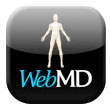 Emory University's School of Medicine's Allan Platt penned an article in The Journal of the American Academy of Physician Assistants that concludes that personal digital assistants (PDAs) and smartphones "are becomining an essential clinical tool that can help clinicians engage in lifelong learning as part of their daily routine." Mobile devices allow for fast access to evidence-based information and can help prevent medical errors and improve care.
Emory University's School of Medicine's Allan Platt penned an article in The Journal of the American Academy of Physician Assistants that concludes that personal digital assistants (PDAs) and smartphones "are becomining an essential clinical tool that can help clinicians engage in lifelong learning as part of their daily routine." Mobile devices allow for fast access to evidence-based information and can help prevent medical errors and improve care.
"Today's practicing clinicians must be able to use these tools to keep up with the rapidly growing volume of medical knowledge," Platt writes. "Students should be taught early in their studies how to use the tools just as they learn to use their stethoscope. Educators must become familiar with the equipment and software programs to teach the next generation of e-connected clinicians."
The JAAPA article points out the mobile devices are the ideal platform for continuing medical education (CME) programs because:
> Printed textbooks typically require a year of processing -- may be out dated once published.
> Colleagues' medical knowledge base may be lagging depending on what they use to stay current.
> The Internet provides sources that are updated, but some patient care settings don't have access.
> CME programs are costly and remove the clinician from practice.
Good points all. Platt then concludes that "the ideal information tool should contain quick, portable, updated, authoritative content available in any clinical setting. Personal digital assistants (PDAs) are convenient reference tools that help clinicians keep up with new treatments, practice lifelong learning, reduce medical errors, and prepare for recertification examinations."
We have written about a number of CME mobile applications in the past, including ReachMD CME and WebMD's MedScape.




















